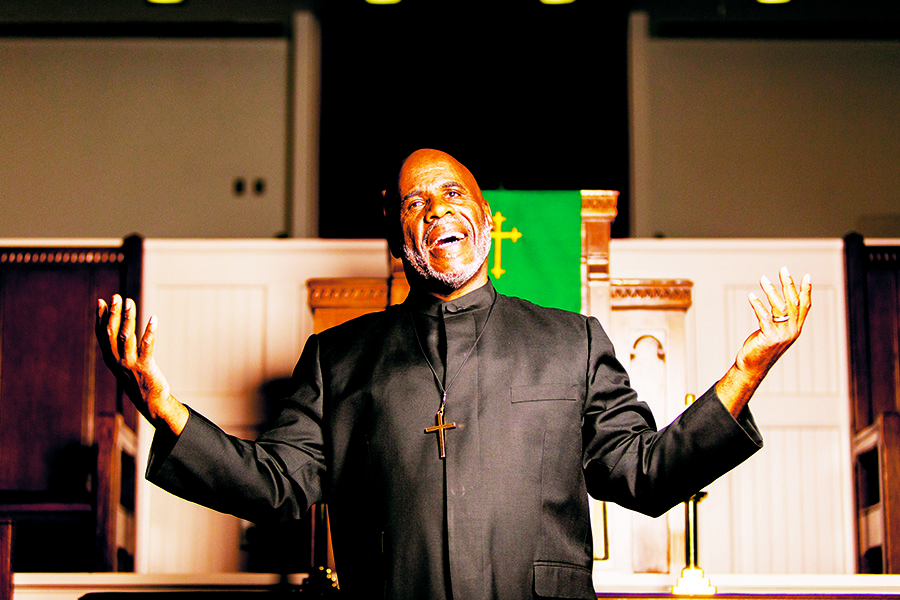Civil
Publisher’s Conversations: Rev. Dr. Keith I. Jones – “A Blessed Ending For A New Beginning”
Explore the remarkable journey of Rev. Dr. Keith I. Jones, from his days as an Army officer to his tenure as Senior Pastor of Shiloh Baptist Church. Discover how his experiences shaped his approach to counseling and crisis management, and the influence of his spiritual mentor on his path. #RevDrKeithJones #ArmyChaplain #SpiritualJourney
#RevDrKeithJones #ArmyChaplain #ShilohBaptistChurch #SpiritualJourney

By Brenda H. Andrews
NJG Publisher
Rev. Dr. Keith Ivan Jones was a young Army officer on his first assignment when he recognized how important it was to him to talk about God to a generation “that had never heard of God.”
At that time, Jones, who currently is retiring as the Senior Pastor of Shiloh Baptist Church in Norfolk, Va., was a Quartermaster Officer; not yet the Army Chaplain he was destined to become. He was responsible for making sure equipment, materials and systems were available and functioning for missions. It was a job that required him to make sure the soldiers he oversaw had proper and adequate equipment to accomplish their mission.
Recently, Rev. Jones sat down to talk with the New Journal and Guide Publisher as he prepares to exit the Shiloh pulpit.
Much of his life, he says, has involved communications whether as an Army Quartermaster Officer or a member of the Clergy. The Chesapeake, Va., native son credits the undergraduate education he received at Norfolk State University for preparing him as a “professional life skills instructor.”
As a young Army Officer, when he sought out an opportunity to advance his military career, he knew increasingly he wanted to make a fuller impression on the lives of the soldiers with whom he interacted. By then, he says, he had observed hundreds of troubled young soldiers marching into the offices of chaplains for help in handling the crises in their everyday lives. Only what he observed was that they usually received lessons on morality that didn’t resolve their conflicts. He began to question if he could not offer troubled soldiers something else in how to live their lives more fully. So he chose to become a chaplain with a focus on counseling and crisis management.
That choice was undoubtedly influenced by his own spiritual mentor when he was a student at Norfolk State.
Then, his driving aspiration as NSU student government president was to separate the state from the church, so that the church would not influence decisions about government.
Yet, Jones may have been a little conflicted because he also was a part of the NSU Campus Ministries under the direction of a man who made a lasting impact on his life then and later as a Chaplain and a Civilian Minister. Rev. Elward Ellis, who was the NSU Campus Minister when Jones was a student, was a “fun” Christian, Jones says, who won the respect and attention of reticent young rebels who may have wanted to remove the ministry from the state-funded campus.
Rev. Jones’ movement into the Army’s Chaplaincy was one he has never regretted. He sought and gained a Master’s degree in counseling which he used in the Army and also as a civilian after retiring from the Army.
As a result, “I have spoken into so many people’s lives,” he says. “I want them to be able to see God in me,” like he saw God in Rev. Ellis, his spiritual mentor.
Rev. Jones retired from the U.S. Army in 2004, after more than 28 years as a Quartermaster Officer and Army Chaplain. As a Chaplain, he advised senior military leaders and soldiers worldwide. He held positions of increasing responsibility including the Division Chaplain for the 25th Infantry, the first African-American to do so, and he served as Pastor of the Army War College Memorial Chapel, one of the Army’s premier pulpits.
Before he received the call into the pulpit of the Black Church, Rev. Jones served as the Director of Counseling Services at Hampton University. There he coordinated a comprehensive program of academic counselling, psychosocial training and mental health services.
With a chuckle, he says the call to serve the Black Church “was a back door sense of calling,” coming last in his career cycle after the Army and working at Hampton University.
To read the rest of A Blessed Ending, click here to subscribe